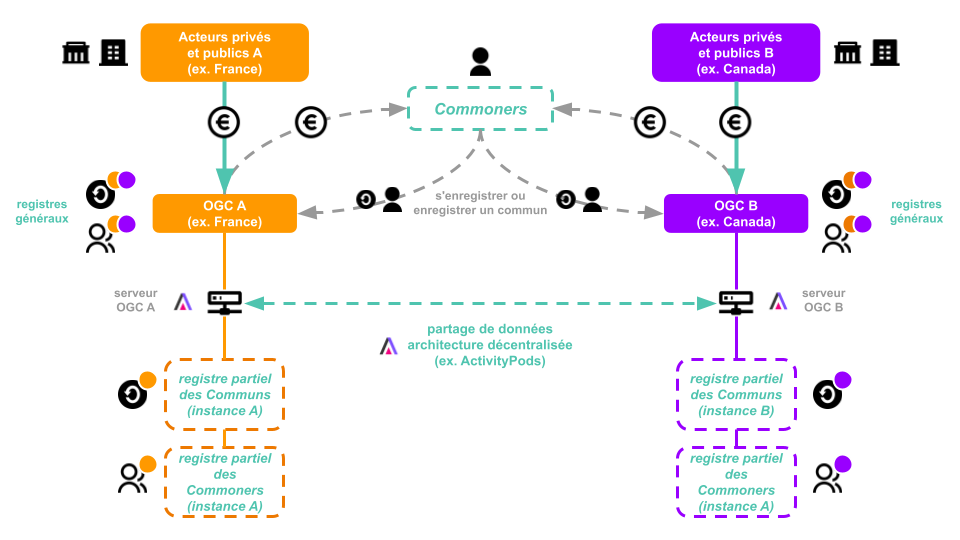
Internationalisation & decentralization
Being able to adapt to local legal specificities
Being able to share datasets (registers of authors or commons)
Have a decentralized information architecture
Why anticipating an international approach?
The constraints of the production of digital commons
- Digital commons can be developed anywhere in the world.
- The commoners contributing to the same common can themselves be based in different countries.
- The financial contributors to the commons can also be based in different countries.
- An OGC is necessarily legally based in a country, the legal status of an OGC can therefore be different from one country to another (foundation, trust, association, trust, etc.).
- An OGC does not necessarily have the vocation - or the capacity - to deal with all of the commons at the global level, it is more realistic to envisage that an OGC has a precise territorial and/or sectoral anchoring.
It is therefore necessary that all CMOs throughout the world can share common registers to avoid duplication and legal inconsistencies: register of commons, register of commoners, amounts of financial contributions, allocation of sums towards the commons and the commoners...
Decentralized architecture
It would be possible - or even more realistic - to have several OGCs distributed throughout the world, and/or different OGCs "specialized" in certain verticals (industrial sector, programming language, etc.)
For such a system to operate on an international scale, the information infrastructure must be shared, while allowing each OGC to manage its own corpus.
Technically it would be possible to offer all OGCs a free digital management tool based on ActivityPods in order to be able to both decentralize data storage, while allowing each instance to manage its own datasets.
Principle diagram
